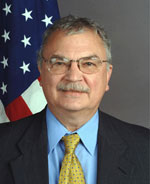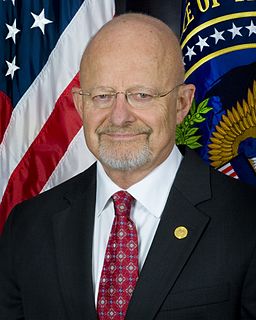A Quote by Ai Weiwei
Because of the economic crisis, China and the United States are bound together. This is a totally new phenomenon, and nobody will fight for ideology anymore. It's all about business.
Related Quotes
The BRIC countries - Brazil, India, China, Turkey, South Africa, Indonesia even, and Russia - are now new actors. Over the last eight years, China multiplied by seven its economic presence and penetration in the Middle East. And if this happens on economic terms and there is a shift towards the East, the relationship between these countries and Israel is completely different from the United States. And it means that the challenges are going to be different, because China is not supporting Israel the way the U.S. are supporting Israel.
Obviously, what's happening in China right now is crucial, in the party congress, which as someone said has anointed a new emperor of China in President Xi. So there's the rise of China, and their active involvement in the United States internally in our business and financial realms. That certainly bears watching.
What the U.S. does is it continues to print money when the economic situation gets difficult. This is what happened in the last depression during the summer of 2008 when they tried to resolve the economic crisis by printing valueless money. This is the business privilege given to them at the famous conference of Bretton Woods in 1944 when the United States emerged as the superpower after Europe and the rest of the world, mainly Europe, that had collapsed because of the war.
The United States is only one superpower. Today they lead the world. Nobody has doubts about it. Militarily. They also lead economically but they're getting weak. But they don't lead morally and politically anymore. The world has no leadership. The United States was always the last resort and hope for all other nations. There was the hope, whenever something was going wrong, one could count on the United States. Today, we lost that hope.
I'm actually genuinely optimistic about the United States and what's possible in the United States. And when you're out here, you see Americans across racial and economic and socioeconomic lines working together. And you maybe get a little bit less cynical than when you sit in the seat of kind of the epicenter of it all.
There are still deep-seated structural problems that threaten the economic balance in the world: Between the United States and China, for example, but also within Europe. We have taken a few steps toward taming the financial markets, but we haven't come nearly far enough to rule out a repetition of the crisis.
There are some people who think that at some time in the future, China may challenge us for supremacy in the Pacific, and therefore, what do we do today to prevent that? And you, of course, will say that we will try to thwart any economic progress in China. If we engaged in such a policy, we would turn a billion-plus people into nationalist opponents of the United States.
The vast Pacific Ocean has ample space for China and the United States. We welcome a constructive role by the United States in promoting peace, stability and prosperity in the region. We also hope that the United States will fully respect and accommodate the major interests and legitimate concerns of Asia-Pacific countries.




































